The Best Places for LGBTQ People to Retire in the US
Though marriage equality and laws blocking employment discrimination are in effect across the land, some cities and states are havens for the LGBTQ community.

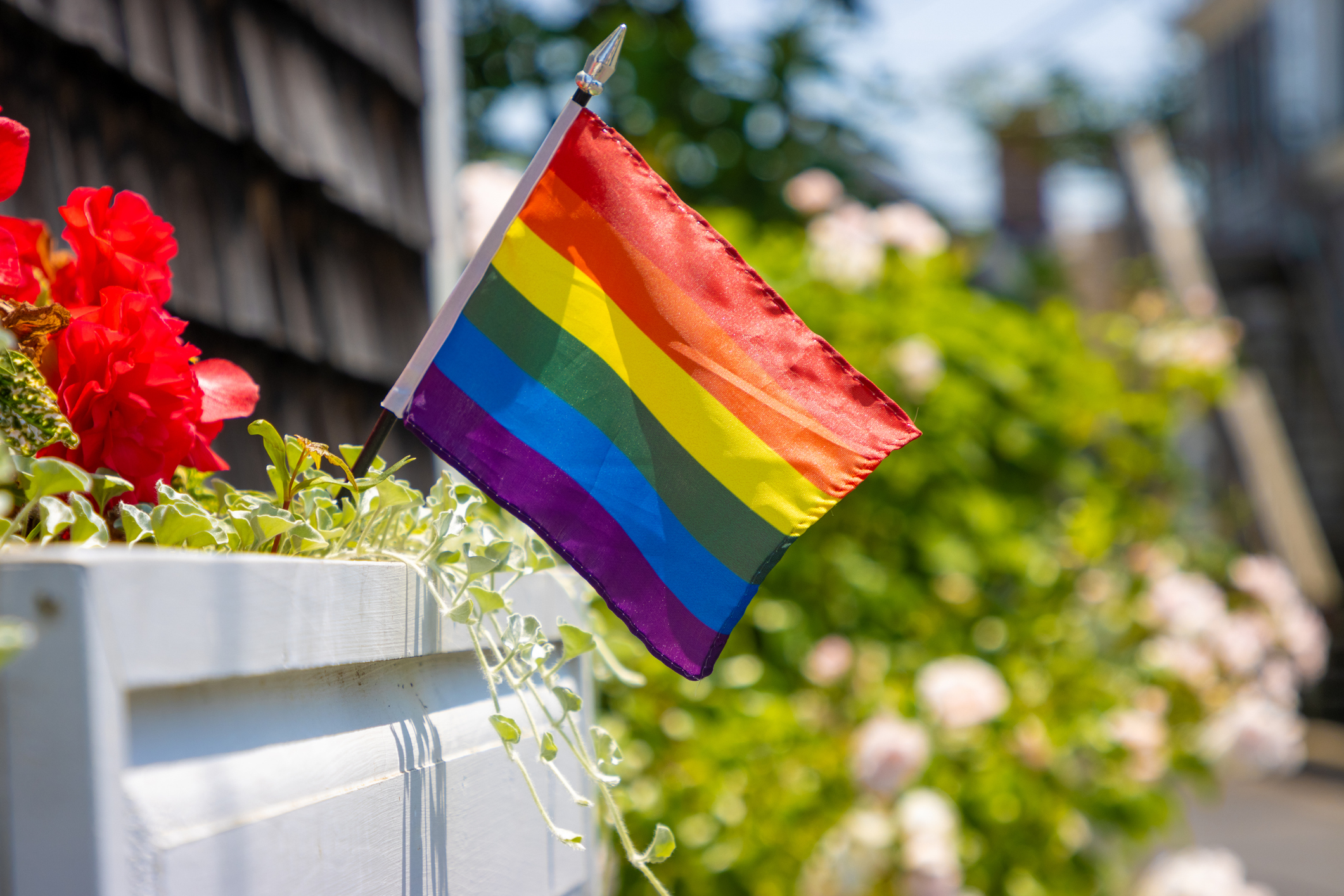
Profit and prosper with the best of Kiplinger's advice on investing, taxes, retirement, personal finance and much more. Delivered daily. Enter your email in the box and click Sign Me Up.
You are now subscribed
Your newsletter sign-up was successful
Want to add more newsletters?

Delivered daily
Kiplinger Today
Profit and prosper with the best of Kiplinger's advice on investing, taxes, retirement, personal finance and much more delivered daily. Smart money moves start here.

Sent five days a week
Kiplinger A Step Ahead
Get practical help to make better financial decisions in your everyday life, from spending to savings on top deals.

Delivered daily
Kiplinger Closing Bell
Get today's biggest financial and investing headlines delivered to your inbox every day the U.S. stock market is open.

Sent twice a week
Kiplinger Adviser Intel
Financial pros across the country share best practices and fresh tactics to preserve and grow your wealth.

Delivered weekly
Kiplinger Tax Tips
Trim your federal and state tax bills with practical tax-planning and tax-cutting strategies.

Sent twice a week
Kiplinger Retirement Tips
Your twice-a-week guide to planning and enjoying a financially secure and richly rewarding retirement

Sent bimonthly.
Kiplinger Adviser Angle
Insights for advisers, wealth managers and other financial professionals.

Sent twice a week
Kiplinger Investing Weekly
Your twice-a-week roundup of promising stocks, funds, companies and industries you should consider, ones you should avoid, and why.

Sent weekly for six weeks
Kiplinger Invest for Retirement
Your step-by-step six-part series on how to invest for retirement, from devising a successful strategy to exactly which investments to choose.
Just as members of the LGBTQ community, at any age, must give more thought than non-LGBTQ people about where to live abroad, the same applies to retiring domestically. Though most legal protections, such as marriage equality and laws forbidding job and housing discrimination, have been federalized, some states led the way early on.
Note that the LGBTQ population of all the recommended states below exceeds 5%, though not all state surveys are as up-to-date as the 2024 Gallup poll, which showed LGBTQ identification in the U.S. at 9.3%. According to the same Gallup survey, the LGBTQ cohort in Gen X — born from 1965 to 1980, that’s the group nearing retirement — clocks in at 5.1%.
Of course, some cities, towns, and neighborhoods have a proud history of gay liberation, acceptance, and safety. Still, LGBTQ people are increasingly visible and accepted in suburban pockets and small villages to an extent that would have been unthinkable a generation ago.
From just $107.88 $24.99 for Kiplinger Personal Finance
Become a smarter, better informed investor. Subscribe from just $107.88 $24.99, plus get up to 4 Special Issues

Sign up for Kiplinger’s Free Newsletters
Profit and prosper with the best of expert advice on investing, taxes, retirement, personal finance and more - straight to your e-mail.
Profit and prosper with the best of expert advice - straight to your e-mail.
And then there’s the question of how gay do you want your new hometown to be — a heterogeneous environment where people don’t bat an eye to see an LGBTQ couple strolling hand-in-hand, or an iconic gay bubble where you appear to be in the majority?
Finally, the desirable coastal states and cities where LGBTQ people are most visible represent some of the most expensive places to live in the nation. So, managing your income scheme — i.e. waiting to retire until your income drops significantly to avoid high state income taxes in California (13.3%), New York (10.9%), and Hawaii (11%) — is paramount.
California
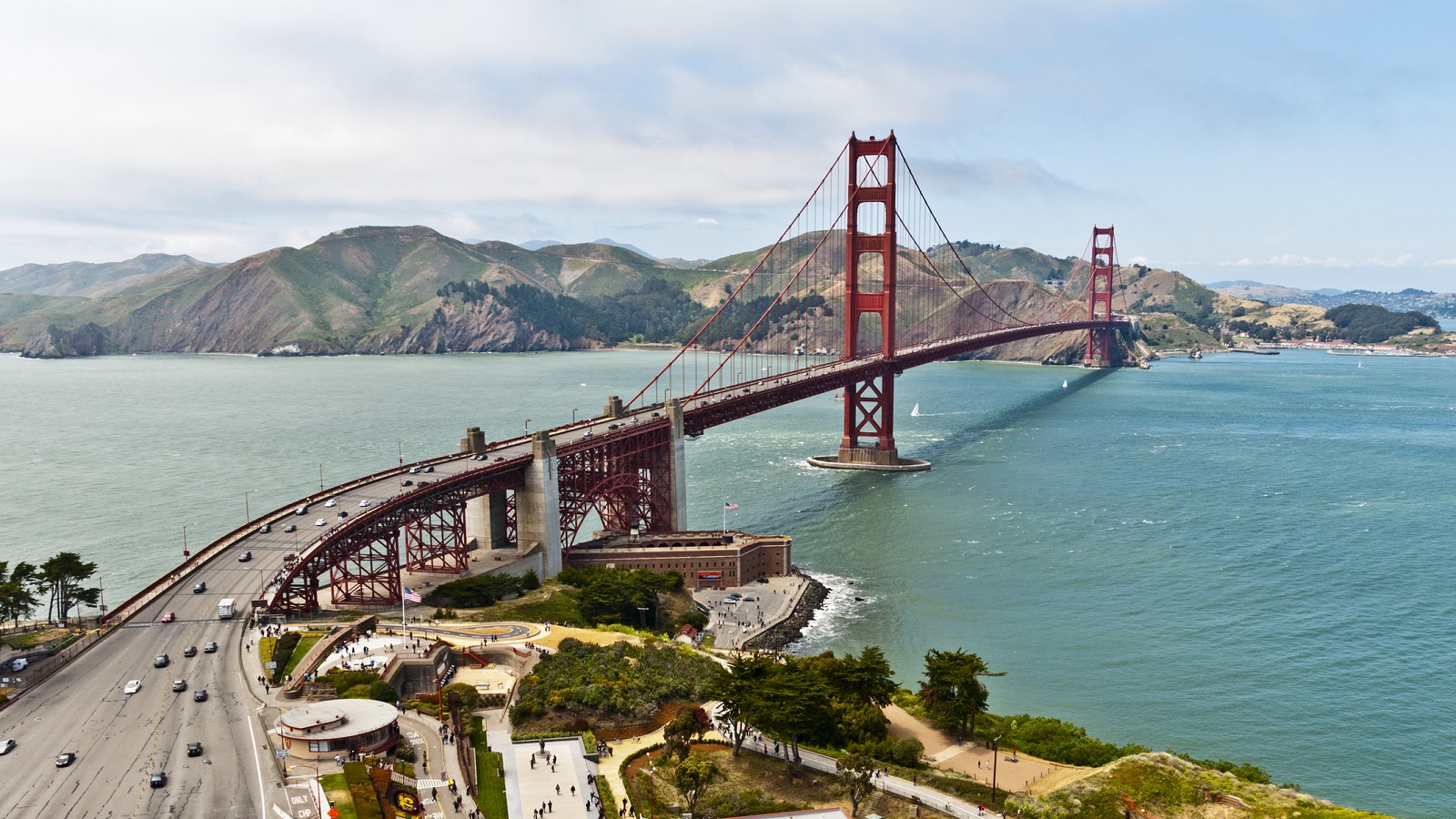
The country’s largest state was just crowned the fourth-biggest economy in the world (surpassing Japan), and its gay-friendly cities, towns, and neighborhoods could fill a book. The state decriminalized same-sex sexual activity in 1976, while it took until 2003 for the U.S. to take this step. Likewise, while employment discrimination based on sexual orientation was legal federally until 2020, California has protected its citizens based on sexual orientation and gender identity since 2003. The state also gets high marks for housing policies that impact LGBTQ people.
Those who wish to retire in an epicenter of LGBTQ culture flock to San Francisco, and the Castro neighborhood, in particular. Arguably the nation’s most scenic city, “SF,” as the locals call it, enjoys peerless social services for the LGBTQ community — as well as world-class medical facilities. Sonoma County, just north of the city, is a noted — and notably beautiful — gay-friendly destination, home of the Russian River Valley (especially the town of Guerneville) a legendary gay resort area.
In Los Angeles County, walkable West Hollywood would fall into the “gay bubble” category, with bars, nightclubs, boutiques, and restaurants geared to the community, though beachfront Santa Monica and Venice have a sizable gay presence. Hillcrest, known for its diverse ethnic food scene, is San Diego’s “gay-borhood.” Meanwhile, the desert lures gay retirees to Palm Springs and its surrounding towns due to its reasonably priced real estate, stimulating midcentury architecture, and thriving gay scene, as depicted in the new Matt Bomer TV show, “Mid-Century Modern.”
It's no secret that wildfire risk is high for some California property owners. You can look up any property for sale on Realtor.com and under the "environmental risk" tab, look up the fire, flood, heat and other risks.
Massachusetts
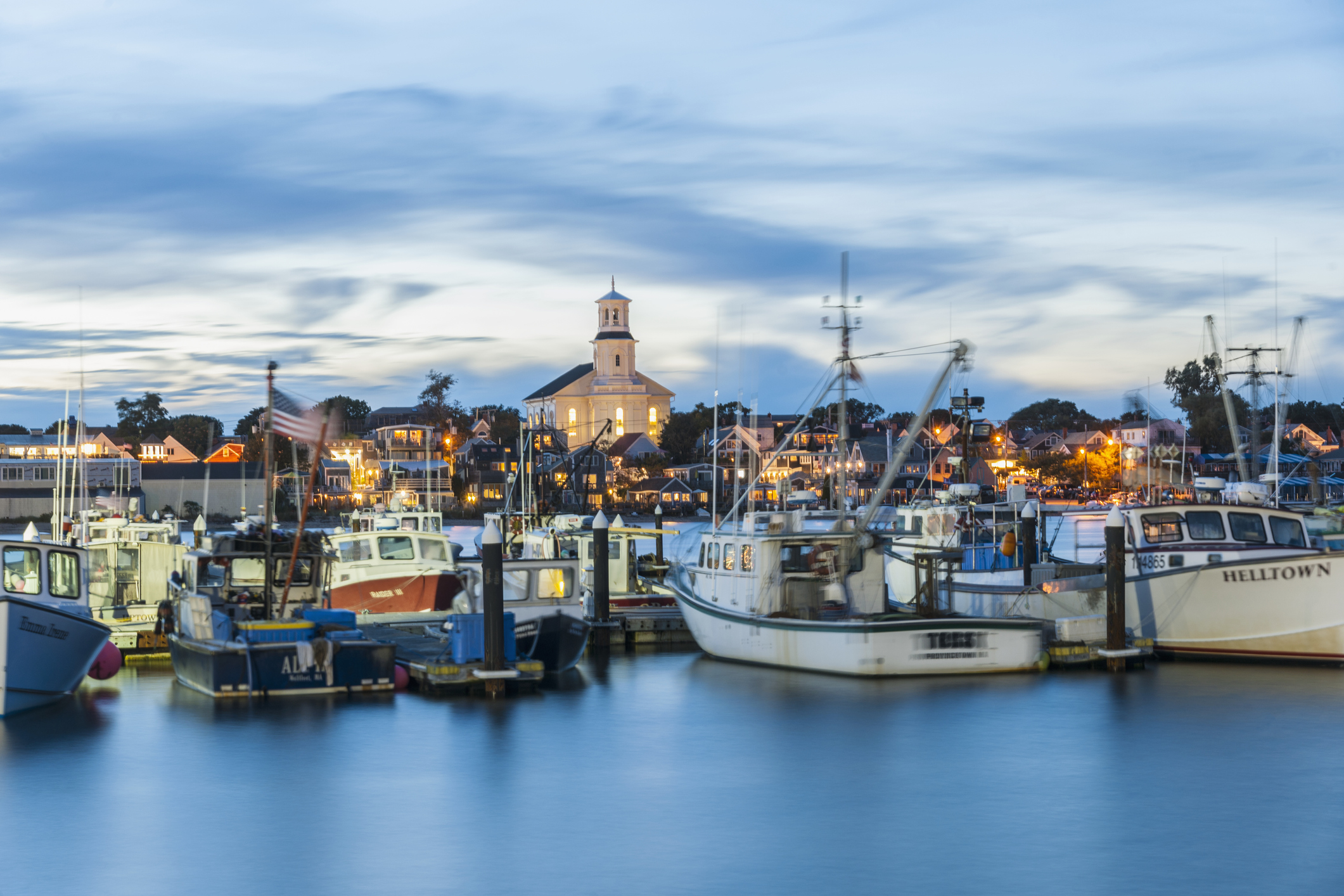
The Bay State has long been one of the safest refuges for the LGBTQ community in the world (Boston’s South End neighborhood is especially popular with gays). The Commonwealth of Massachusetts holds the distinction of being the first state in the U.S. to grant same-sex marriage licenses, in 2004.
If you say “gay” and “Massachusetts,” chances are that the next word will be Provincetown (or “Ptown”). Located at the tip of Cape Cod, sui generis Ptown is historic, walkable, and bikeable, filled with singles and families of all stripes, as well as drag performers promoting their evening shows on Commercial Street. The summer population swells to around 60,000, but the year-round crew of around 4,000 is slowly adding couples who settle there permanently. Cottage-dotted, adjacent North Truro, also on the sea but with less expensive real estate than Ptown (where a 375-square-foot oceanfront unit can command more than a million dollars), is gaining allure among gay retirees. The art and culinary scenes on this part of the Cape are world-class.
“I always knew I wanted to end up in Ptown,” says hairstylist Joe Bruno, the owner of Bruno’s Chop Shop in Provincetown. He and his husband Gerry Buncher left Los Angeles in 2020 to settle into their newly built home in North Truro. For Buncher, it was finally time to retire. “I had never been to Provincetown until I met Joe, and I fell in love with it the first time I was here,” he recalls. After a high-stress career as a social worker, it was time for a simpler life. “I was the executive director of two Jewish community centers, and I had a lot of responsibility, a lot of pressure,” he says. Now he keeps himself busy with summer seasonal jobs as a personal trainer and working the box office at the Crown & Anchor, a wildly popular hotel, restaurant, cabaret, and beach club. “There's so much that you can make out of this place — or so little,” Buncher says. “You can be as immersed into the community as you wish.”
New York
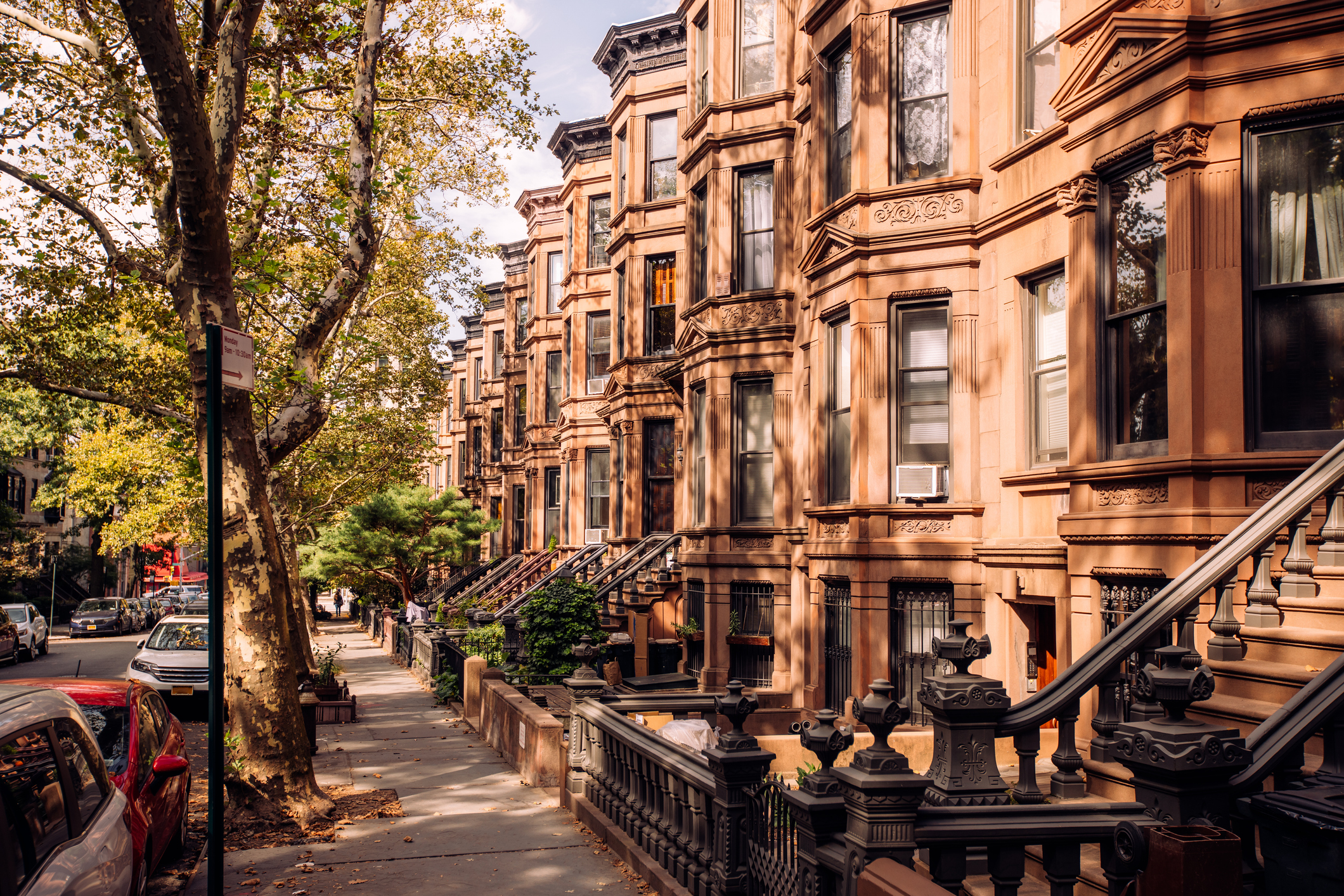
Like California, New York State is full of LGBTQ enclaves, from downtown Manhattan to upstate. Of course, the more you venture away from New York City, the more that easy walkability will be an issue, so it’s important to be honest with yourself about your fitness level — and whether you are primarily a driver or a walker. That said, most LGBTQ folks are drawn to areas where services, shops, and restaurants are located within a few blocks — from the historically gay neighborhoods of Chelsea, Hell’s Kitchen, and the West Village (the site of the Stonewall Inn, the National Historic Landmark that’s synonymous with the modern gay rights movement), to the charming and more demographically mixed Brooklyn hoods of Cobble Hill, Park Slope, and Brooklyn Heights.
One lovely thing about New York City is that it is democratically diverse in terms of age, which is not necessarily true in other LGBTQ magnets. You’ll find elderly singles and couples, gay and straight people wheeling strollers, and dog owners of all ages — an egalitarian cross-section. New York’s cultural opportunities for retirees — museums, theater, bookstores — are unparalleled, even if the snowy winters are somewhat punishing.
Upstate New York is known for its LGBTQ-friendly cities and towns, from Troy and Woodstock to Saratoga Springs and New Paltz (where gay marriages were performed in 2004, seven years before marriage equality became state law).
Florida
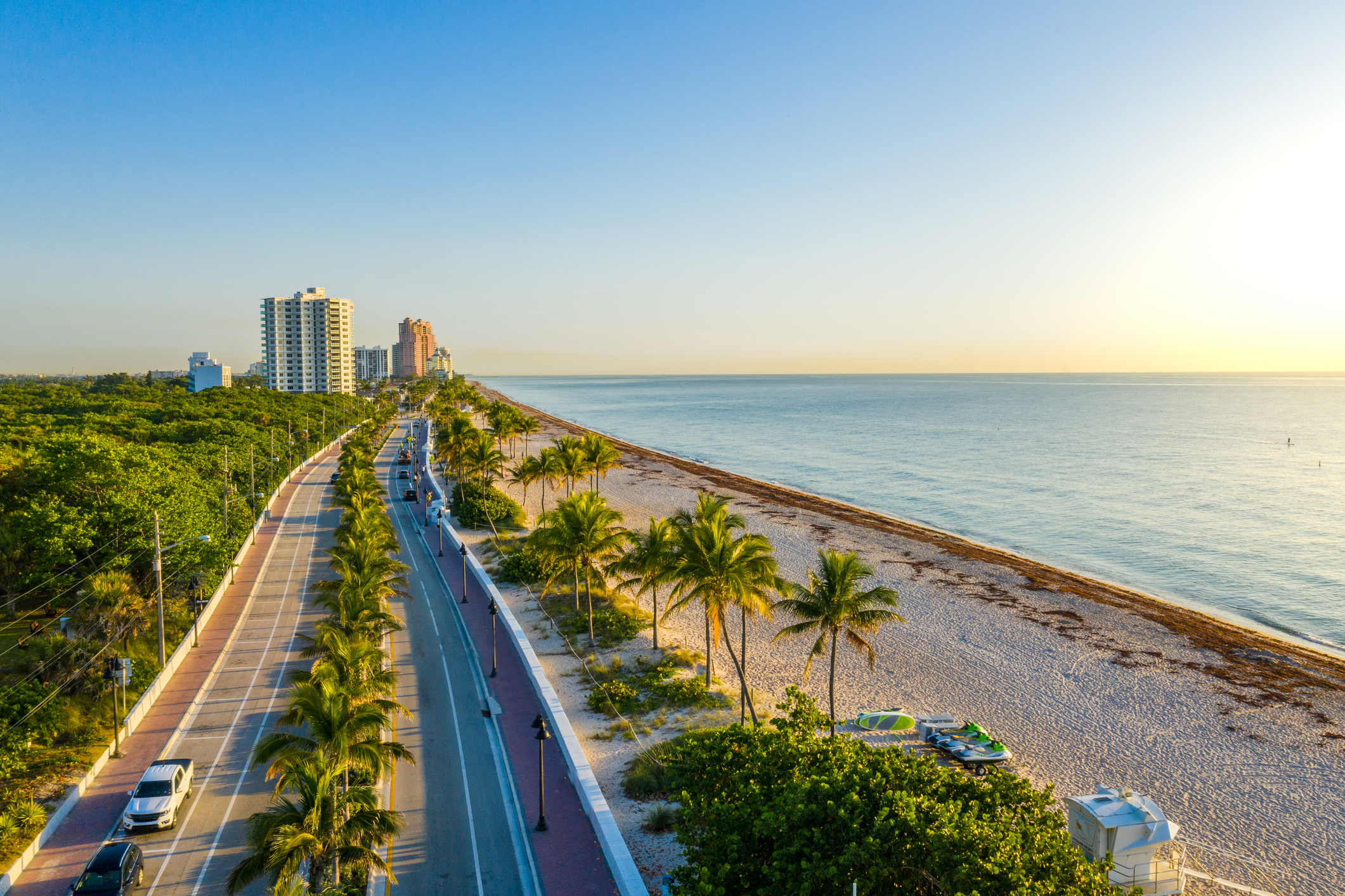
Due to its political climate, the Sunshine State may represent a conundrum for LGBTQ retirees. The rights to same-sex sexual activity, marriage equality, and freedom from workplace discrimination did not become legal in Florida until the U.S. Supreme Court stepped in to federalize these rights, and the state has shown antipathy toward transgender rights under the governorship of Ron DeSantis, though his efforts to roll back LGBTQ rights were thwarted for the most part.
And yet, 5% of the state’s workforce is LGBTQ, as last measured. Axios puts the LGBTQ population (5.4%) as higher than California’s (5.1%), with substantial gay populations in Miami-Dade, Broward, and Palm Beach counties, as well as in Orlando. The gay community helped revitalize tourism in South Beach (at the southern tip of Miami Beach) in the 1990s after decades of stagnation, and even if South Beach isn’t exactly the gay mecca that it was during the Clinton years, the LGBTQ community is still extremely visible.
“There are people from Manhattan who have dreamed of moving to Miami,” says real estate advisor Brian Rokicki. “I have a couple of clients who’ve sold their places in New York and are looking to retire, mainly in South Beach. They want the walkability and the vacation lifestyle.” Retirees typically gravitate toward the full-service high-rises on the bay (west) side of South Beach, which is primarily residential and away from the hubbub of Ocean Drive. Rokicki notes that the condo market in the $2 million range “is still very strong”; below that price, it’s more of a buyer’s market.
To the north, Wilton Manors, in Greater Fort Lauderdale, is a gay bubble filled with clubs, restaurants, and boutiques that cater to the community. Regardless of the political winds, that doesn’t seem likely to change. “Greater Fort Lauderdale has been and will continue to be the most welcoming and inclusive destination in the State of Florida,” says Stacy Ritter, the president and CEO at Visit Lauderdale. “We embrace and celebrate you regardless of how you identify, how you worship (if at all), and who you love.”
Before putting down a deposit, buyers should consider the risks of buying a Florida condo. And even if many retirees might prefer a full-service building with a pool, there's something to be said for considering a pied-à-terre in a small one- to three-story art deco building — namely, less chance of an overwhelming assessment down the line. For example, the Florida Condominium Act requires older condo associations to hold enough funds in reserve to cover major upgrades.
For any Florida real estate search, do a quick check on the flood risk. In some cases, there may be a high risk but the local government may be taking steps to adapt, as is the case in Miami. Be sure to include the cost of insurance; a recent Bankrate study found Florida has the second-highest average home insurance premiums in the country, at $5,409 per year.
Hawaii
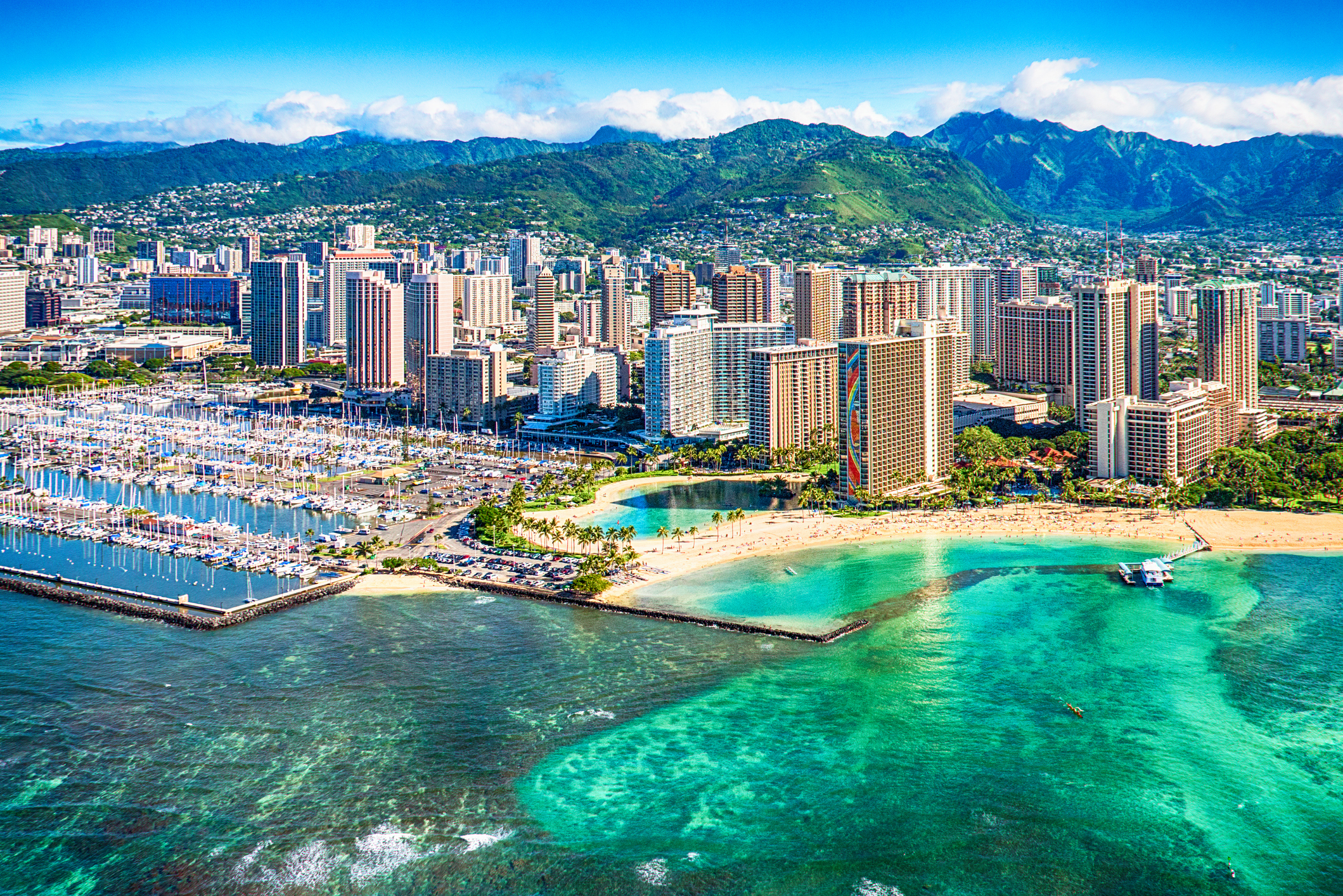
The Aloha State holds a special place in the history of gay rights, as the Hawaii Supreme Court ruled that same-sex marriage was a fundamental right back in 1993, though it took until 2013 for the right to be codified into law. Same-sex sexual activity has been legal in Hawaii since 1973, and the state has one of the highest percentages of transgender people in the nation, reflecting the acceptance of gender fluidity in Polynesian culture in general. In pre-colonial Hawaii, there was no stigma attached to partners of the same gender, called aikāne, while māhū (the term refers to people with both male and female spirits) were also accepted, even revered, in pre-colonization times. Those tolerant attitudes reawakened as the Christian missionary influence faded.
Hawaii is an expensive place to live, but for those who can afford it, it’s nirvana. Not only is the weather conducive for healthy living, but the state is ranked No. 1 in healthcare access, second in quality, and third in public health. Oahu is the state’s most populous island, and its legendary Waikiki Beach is an epicenter of gay life that features iconic watering holes like Bacchus Waikiki and Hula’s Bar and Lei Stand. Maui, the state’s second-largest island, is also considered to be gay-friendly, with the bohemian Little Beach attracting gay and straight nudists, fire dancers, and drummers to create a one-of-a-kind time machine back to 1968.
Related content
Profit and prosper with the best of Kiplinger's advice on investing, taxes, retirement, personal finance and much more. Delivered daily. Enter your email in the box and click Sign Me Up.

Drew Limsky joined Kiplinger Digital as a freelance retirement writer because he believes that every day offers opportunities to make better financial decisions, and that it’s never too late to learn how to enhance your financial position and lifestyle. Drew is the former editor of Lexus magazine, Cadillac magazine, South Florida Business & Wealth, Business Jet Traveler, Interiors South Florida, and Mariner (for Holland America). Drew’s writing credits include The Wall Street Journal, New York Times, LA Times, Washington Post, Boston Globe, Yahoo, Worth, AD, Robb Report, Metropolis, Men’s Journal, and Business Insider. An Emory grad, Drew earned his JD and PhD at NYU, and lives in Miami Beach, Brooklyn, and Cape Cod.
-
 Dow Adds 1,206 Points to Top 50,000: Stock Market Today
Dow Adds 1,206 Points to Top 50,000: Stock Market TodayThe S&P 500 and Nasdaq also had strong finishes to a volatile week, with beaten-down tech stocks outperforming.
-
 Ask the Tax Editor: Federal Income Tax Deductions
Ask the Tax Editor: Federal Income Tax DeductionsAsk the Editor In this week's Ask the Editor Q&A, Joy Taylor answers questions on federal income tax deductions
-
 States With No-Fault Car Insurance Laws (and How No-Fault Car Insurance Works)
States With No-Fault Car Insurance Laws (and How No-Fault Car Insurance Works)A breakdown of the confusing rules around no-fault car insurance in every state where it exists.
-
 Why Picking a Retirement Age Feels Impossible (and How to Finally Decide)
Why Picking a Retirement Age Feels Impossible (and How to Finally Decide)Struggling with picking a date? Experts explain how to get out of your head and retire on your own terms.
-
 For the 2% Club, the Guardrails Approach and the 4% Rule Do Not Work: Here's What Works Instead
For the 2% Club, the Guardrails Approach and the 4% Rule Do Not Work: Here's What Works InsteadFor retirees with a pension, traditional withdrawal rules could be too restrictive. You need a tailored income plan that is much more flexible and realistic.
-
 Retiring Next Year? Now Is the Time to Start Designing What Your Retirement Will Look Like
Retiring Next Year? Now Is the Time to Start Designing What Your Retirement Will Look LikeThis is when you should be shifting your focus from growing your portfolio to designing an income and tax strategy that aligns your resources with your purpose.
-
 I'm a Financial Planner: This Layered Approach for Your Retirement Money Can Help Lower Your Stress
I'm a Financial Planner: This Layered Approach for Your Retirement Money Can Help Lower Your StressTo be confident about retirement, consider building a safety net by dividing assets into distinct layers and establishing a regular review process. Here's how.
-
 Your Adult Kids Are Doing Fine. Is It Time To Spend Some of Their Inheritance?
Your Adult Kids Are Doing Fine. Is It Time To Spend Some of Their Inheritance?If your kids are successful, do they need an inheritance? Ask yourself these four questions before passing down another dollar.
-
 The 4 Estate Planning Documents Every High-Net-Worth Family Needs (Not Just a Will)
The 4 Estate Planning Documents Every High-Net-Worth Family Needs (Not Just a Will)The key to successful estate planning for HNW families isn't just drafting these four documents, but ensuring they're current and immediately accessible.
-
 Love and Legacy: What Couples Rarely Talk About (But Should)
Love and Legacy: What Couples Rarely Talk About (But Should)Couples who talk openly about finances, including estate planning, are more likely to head into retirement joyfully. How can you get the conversation going?
-
 We're 62 With $1.4 Million. I Want to Sell Our Beach House to Retire Now, But My Wife Wants to Keep It and Work Until 70.
We're 62 With $1.4 Million. I Want to Sell Our Beach House to Retire Now, But My Wife Wants to Keep It and Work Until 70.I want to sell the $610K vacation home and retire now, but my wife envisions a beach retirement in 8 years. We asked financial advisers to weigh in.